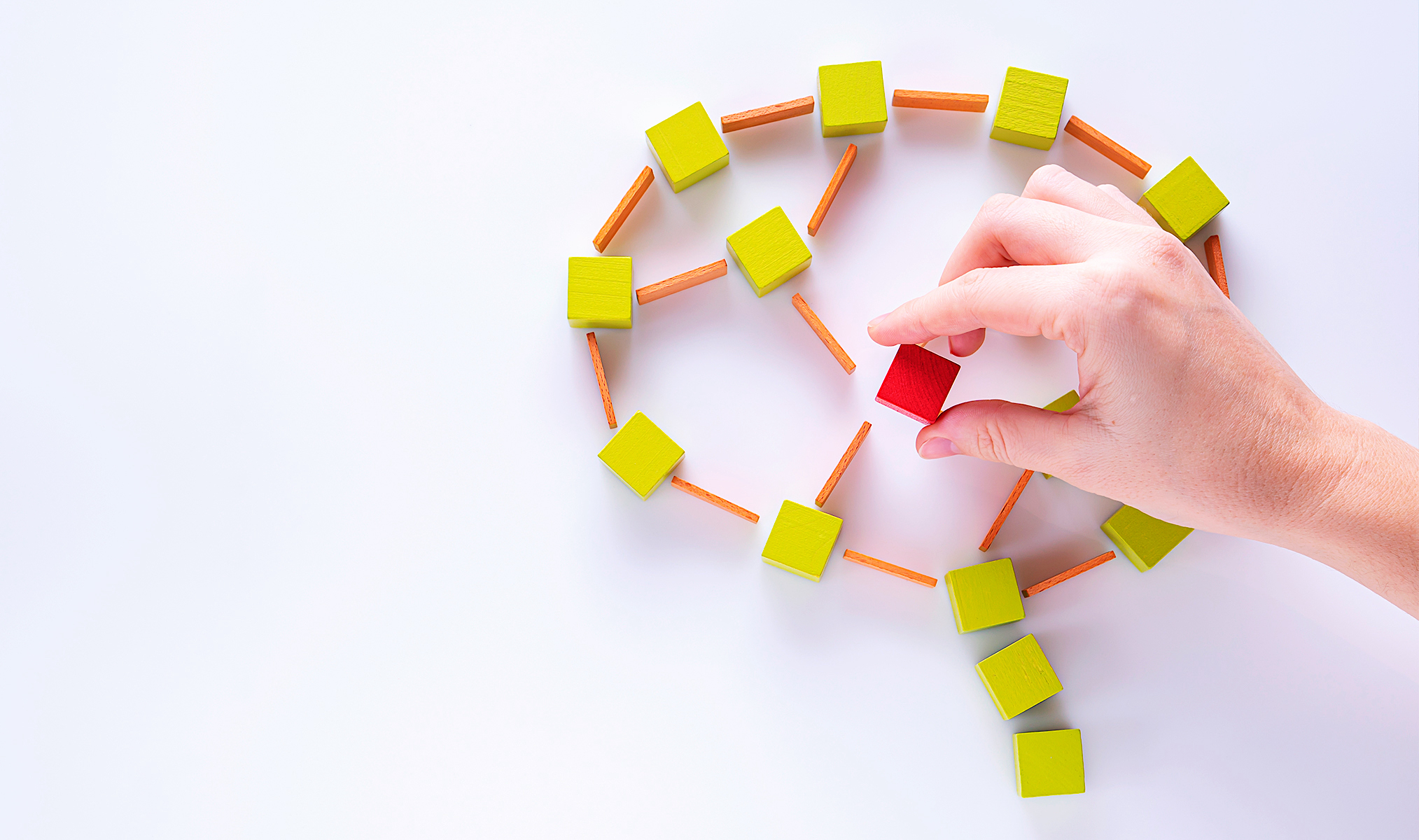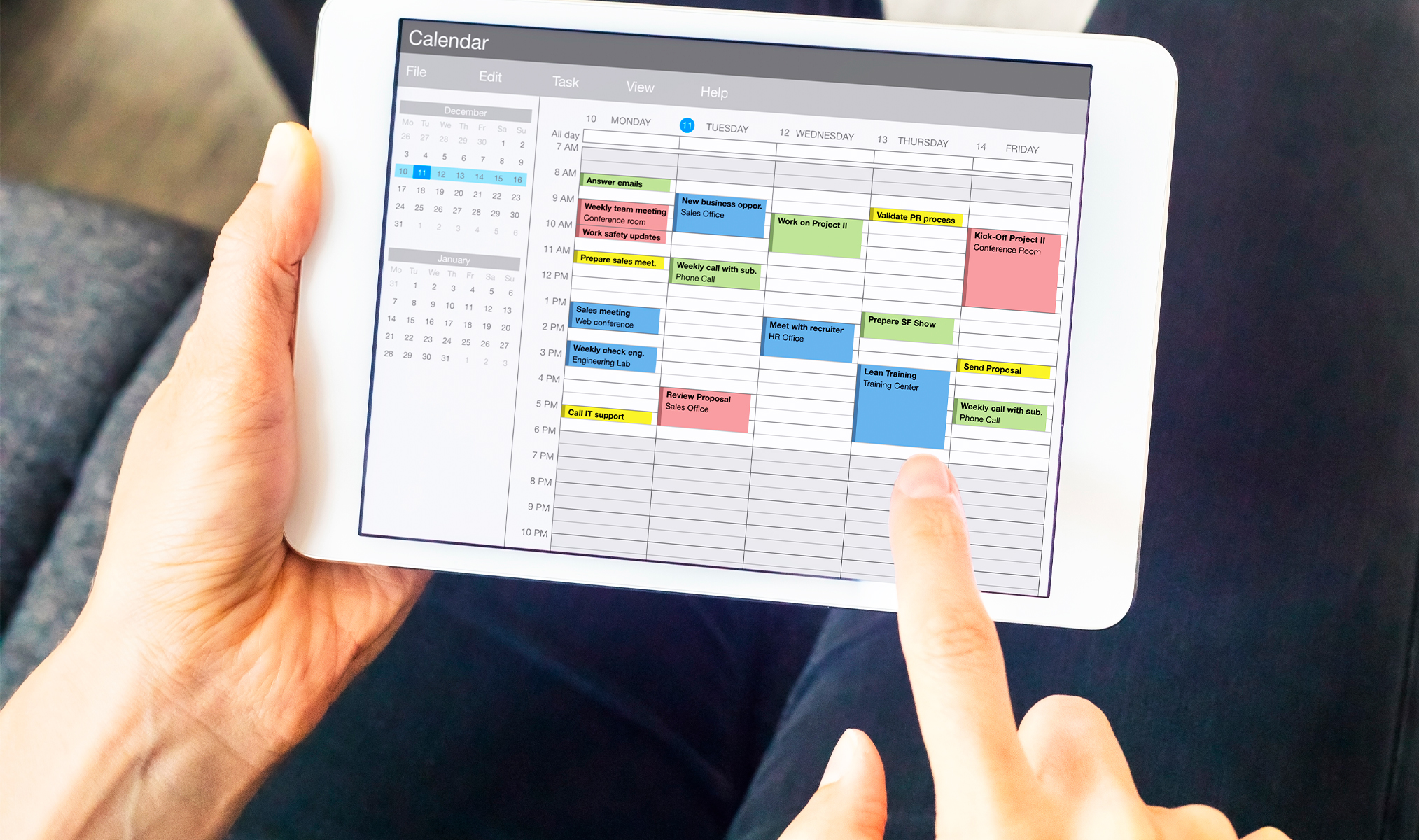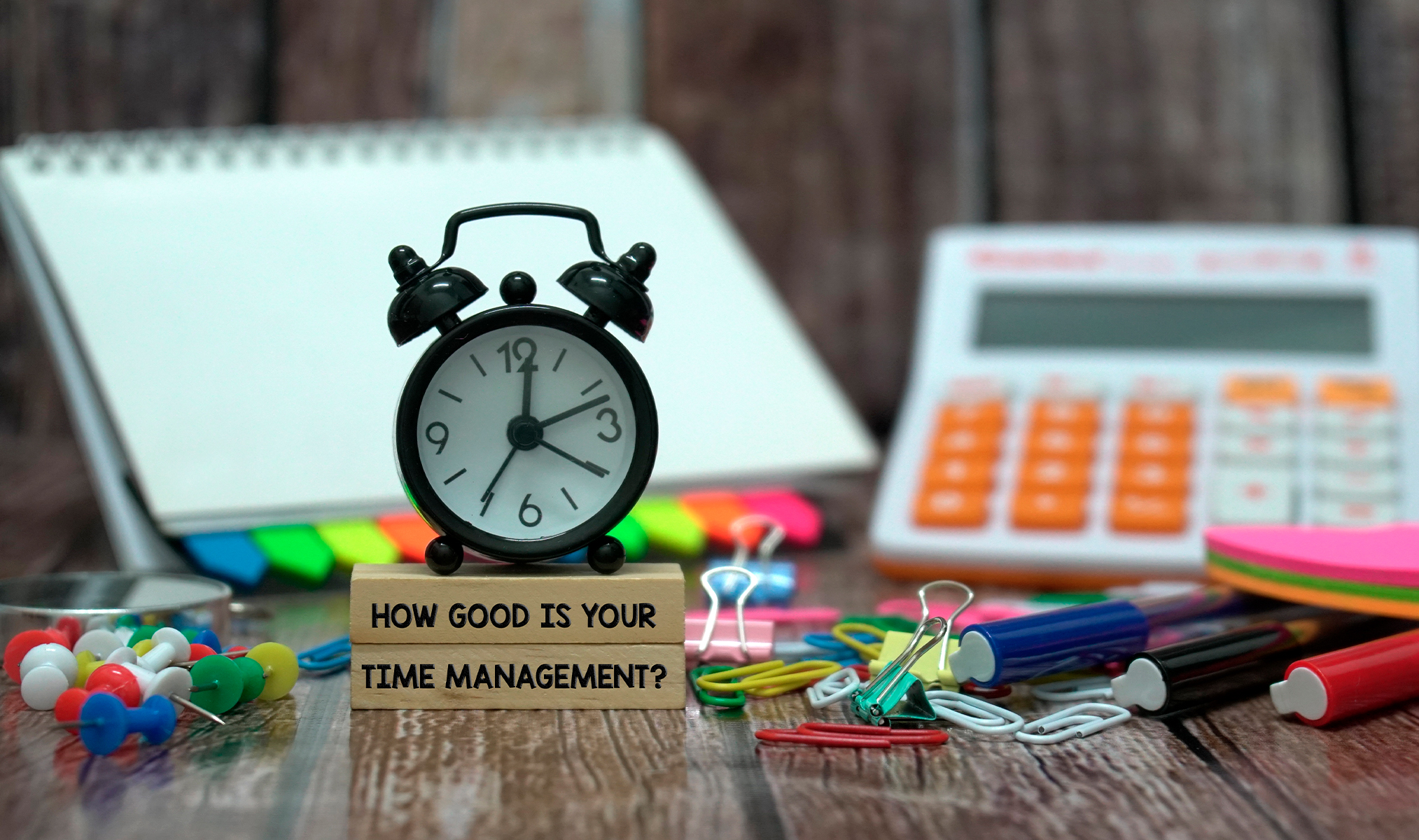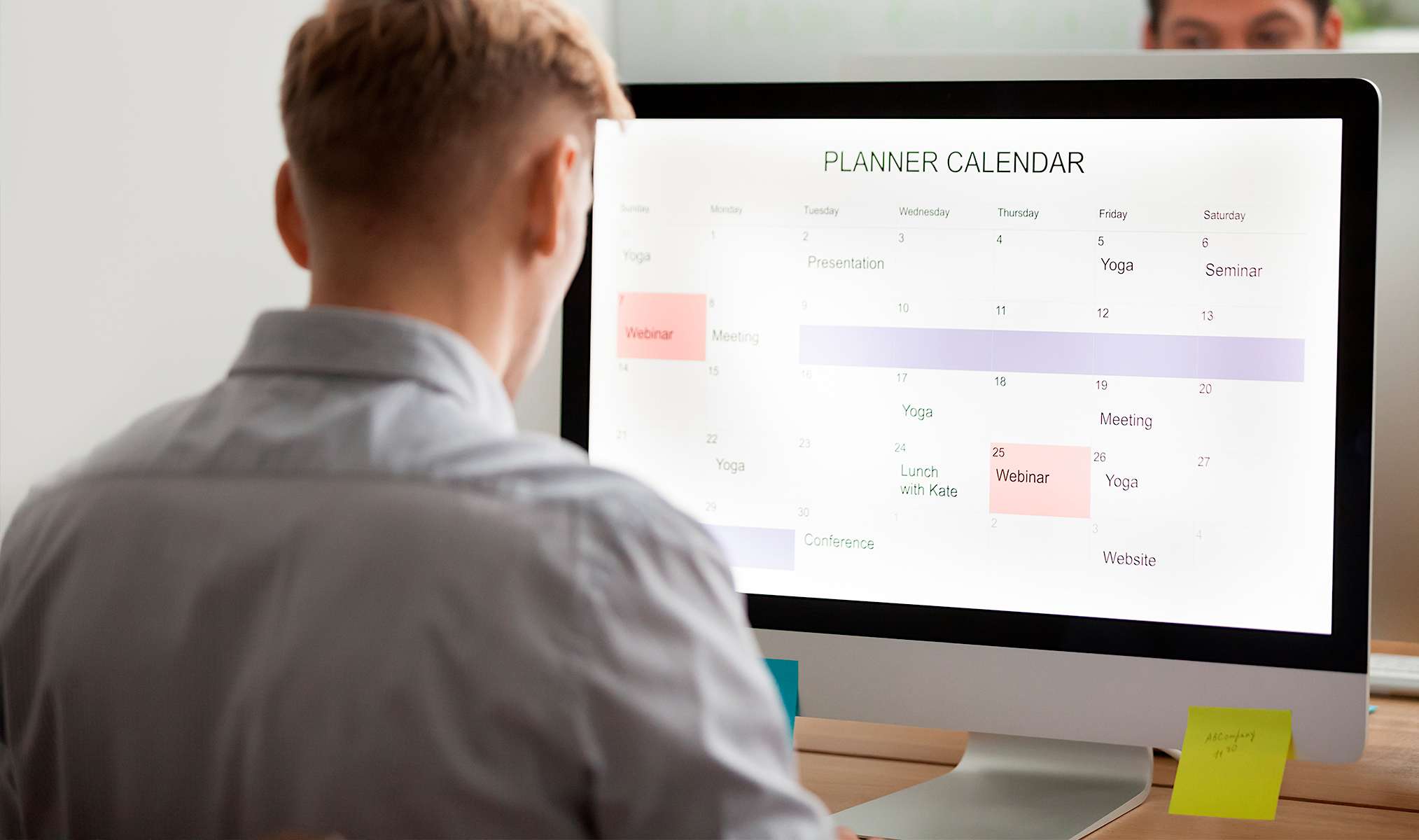What is Focus?
Focus is when we direct our attention to something or someone. When you focus, your mind is dedicating most of its attention to the task at hand and blocking out potential disturbances. .
Your energy is directed at efficiently completing this task as quickly but productively as possible, including reducing the time you spend between tasks. Employees will focus their attention on completing an objective.
Why it’s difficult to focus at work
Most professionals have a 9 to 5 job. While they’re in the office for eight hours, research suggests that the average office worker has less than three hours of high output a day. We’re surrounded by distractions in an office, from colleagues chatting to non-stop email notifications and disorganized meetings that run over time.
Research suggests it takes over 20 minutes to regain full focus after being distracted at work.
Failing to stay focused due to interruptions in flow causes 54% of employees to have to work outside of their normal hours to catch up on work. Multitasking is one of the main reasons for loss of attentiveness, with over 90% of workers saying they multitask in meetings, leading to less impactful meetings.

Photo:fizkes / Shutterstock.com
Struggling to focus on tasks and be effective can negatively impact your mental health by increasing work-related stress. Research in the UK found that over 2 million workers struggled with anxiety, depression, and stress relating to their work. These internal factors and mental barriers can make it easier to lose attention and become distracted.
Learning how to focus better on tasks and putting actionable strategies in place can help with staying on time and improving your mental health.
13 ways to stay focused and productive at work
Figuring out how to stay focused and productive at work can take trial and error. Everyone’s brain works differently, and some people can cope better with obstructions, while others need regular breaks to maintain their level of output. Staying focused at work ensures you finish your tasks and don’t have to work overtime, allowing you to switch off and enjoy social activities.
Taking proactive steps to boost your concentration and efficiency can positively impact your mental health by reducing stress. We’re sharing 13 ways to boost your focus at work and boost productivity.

Photo: Radachynskyi Serhii / Shutterstock.com
1. Try remote working to minimize distractions
Your environment affects your attentiveness and output. 80% of employees say remote work enhances their focus by reducing workplace-related disturbances. If you struggle with staying focused, exploring flexible and remote working could improve your productivity.
50% of office workers prefer to complete important tasks at home to minimize distractions and improve their mental concentration.
Working remotely can help you focus on tasks, with strategies to boost creativity and concentration:
- Create a designated workspace in a well-lit and quiet area of your home with all the equipment you’ll need, including a comfortable seat.
- Implement a daily routine that compliments your “flow”.
- Make weekly and daily to-do lists to stay on top of deadlines.
- Avoid multitasking unless necessary.
2. Turn on “Do not disturb” to boost productivity
It’s hard to avoid your phone when it starts to “ding” or vibrate on your desk. Curiosity and human nature mean we easily lose focus when notifications start piling up on our desktops or phones.

Photo: Bird stocker TH / Shutterstock.com
Almost 70% of professionals say their emails as one of their main disturbances at work. Turning your device onto “do not disturb” to focus on specific tasks can increase output by 50%. Muting notifications can give you the peace of mind to disconnect and focus on important tasks.
3. Avoiding checking social media at work
How you relax during your breaks can impact your concentration once you’re back on the clock. Most of us check social media or take a minute to do some online shopping, but this can make it harder to focus afterward. Over 30% of employees say social media is the main reason they struggle to pay attention while working.
Turn off notifications for social media during working hours and avoid the temptation of checking them during your lunch break. Use time off to unwind your mind with a podcast or take a short walk to disconnect.

Photo: Ground Picture / Shutterstock.com
4. Use noise-canceling headphones when working
Trying to focus in a loud office or crowded space isn’t easy. You’re putting yourself in an environment full of distractions, and it can be difficult for your mind to switch off from them. Almost 50% of employees say their environment is noisy, with research suggesting excessive noise can lead to a 66% reduction in productivity.
Investing in noise-canceling headphones can help you maintain your focus and attention while working in loud office environments or public spaces. Noise-canceling headphones allow you to make a productive workspace while traveling and improve your mental well-being by creating a sense of calm to reduce stress.

Photo: Gorodenkoff / Shutterstock.com
5. Prioritize on one task for better concentration
Multitasking might sound like a good idea when you’re ticking off your to-do list, but it can often be counterproductive. Over 65% of employees consider multitasking a significant distraction.
If you’re easily distracted by other people, take yourself to an environment where you’ll be more productive, such as a quiet corner or an empty meeting room. Give yourself clear deadlines to help focus on your daily agenda and avoid procrastination.

Photo: fizkes / Shutterstock.com
6. Time block your calendar with specific tasks
Time blocking can help you prioritize tasks, especially if you’re working on tight deadlines. Use your deadlines to create time blocks in your calendar, setting time aside to do manual tasks like checking emails and for regular breaks. Spending just 10 minutes organizing and time blocking your day can save you two hours of your working day.
Utilizing time blocking allows you to focus on individual or grouped tasks to avoid procrastination. It’s a focus optimization tip and can help you stay in the zone while working. Everyone’s brain reacts in different ways. You can schedule more critical and difficult tasks for hours of the day when you’re more productive, such as first thing in the morning or right after lunch.

Photo: NicoElNino / Shutterstock.com
7. Incorporate workouts into your daily routine
Getting in daily exercise can improve your attention and mindfulness for the day. Exercising improves your brain’s feel-good hormones, including dopamine and serotonin, positively impacting your focus and creativeness. Regular exercise can also boost your memory and thinking skills while reducing anxiety and stress.
Research recommends 30 minutes of moderate exercise, either before or after work.
You can cycle to the office or take up a hobby, such as swimming, yoga, or tennis, to incorporate exercise time into your daily routine.

Photo: Jacob Lund / Shutterstock.com
8. Provide incentives to maximize productivity and output
Improving workplace output and minimizing distractions is a top priority for companies. Providing incentives for achieving key performance indicators (KPIs) and maintaining a high level of output can encourage employees to stay absorbed in their tasks.
Rewards, such as corporate travel, can incentivize employees to learn how to stay focused and become more creative.
RateHawk is a one-stop destination for travel agents organizing corporate travel with access to over 2.5 million hotels from over 230 suppliers.
Sign up to RateHawk today to book flights, transfers, and hotels on one easy-to-navigate platform with exclusive corporate travel deals.

Photo: Natee Meepian / Shutterstock.com
9. Prepare for meetings in advance to stay on schedule
The rise of remote work has led to virtual meetings becoming an everyday part of life. While these are often more convenient than face-to-face meetings, they can make it difficult to focus on your work if they’re poorly organized and run over their scheduled time.
The best time to host meetings is between 8 am and 12 pm, with a clear agenda and objectives to achieve a high-yielding meeting.
Almost 70% of professionals believe their output is negatively impacted by spending too long on meetings and calls.

Photo: Vadym Pastukh / Shutterstock.com
10. Try breathing exercises and meditation
We all can feel stressed during the day. Taking a 10-minute break to do breathing exercises or meditate can put your mind at ease and get your brain back on task. Mindfulness exercises and regular meditation improve the brain’s cognitive abilities, including your attention span at work.
Incorporating meditation into your daily routine can train your brain to focus on tasks for longer and improve your ability to concentrate effectively. Meditation and mindful breathing will give you mental clarity at work, boosting your creativity and enhancing problem-solving skills.

Photo: Julia Zavalishina / Shutterstock.com
11. Schedule regular breaks
Focusing for eight hours straight can negatively impact your mind and body. Plan regular breaks to take time to exercise and refuel your body, ensuring you eat a proper lunch and hydrate.
Regular breaks help improve your energy and make it easier for your brain to stay focused on tasks when you resume work.
12. Figure out your work “flow”
Play to your strengths by figuring out your “flow”. Does your brain operate better when you have a sense of urgency? Are you more energetic when you complete smaller tasks at a certain time? This tip will require a little experimentation and observation.
Research by the University of Chicago suggests that planning your day around your “flow” can improve concentration and make it easier to move between tasks without interruptions. Use your workflow to build a robust daily schedule with time blocking to accomplish your to-do list and stay ahead of deadlines to reduce anxiety and job-related stress.

Photo: Mohd KhairilX / Shutterstock.com
13. Write a daily to-do list
Trying to keep everything in your brain isn’t easy. Set your day up for success by writing down a to-do list and any ideas you have for projects. You can keep a physical to-do list or use apps like Google Docs to easily access your notes on the go, so you never forget an idea.
Here are 4 ways to create better to-do lists to heighten your focus:
- Set realistic expectations to avoid burnout.
- Write your to-do list in order of priority for better efficiency.
- Structure it into your schedule, assigning larger tasks to the start of your day.
- Create a weekly schedule as the basis for your daily focus, with a mixture of high and low-priority tasks each day.
Your to-do list is the ultimate resource to stay focused at the office. Make sure to cross off each task as you complete it and carry over any unfinished tasks to the to-do list for the next day.

Photo: fizkes / Shutterstock.com
Learning how to be focused and productive at work
Implementing these tips to improve your attention span can increase productivity by minimizing distractions and factors that negatively impact your focus, including stress and anxiety.
Enhancing your ability to focus helps you produce a higher quality of work and avoid working overtime.
Incorporating the tips above, such as exercise and meditation, into your daily routine can positively impact your concentration and life outside the workplace, making it a win-win for every professional.
Cover: photo by Stanley Dai on Unsplash


